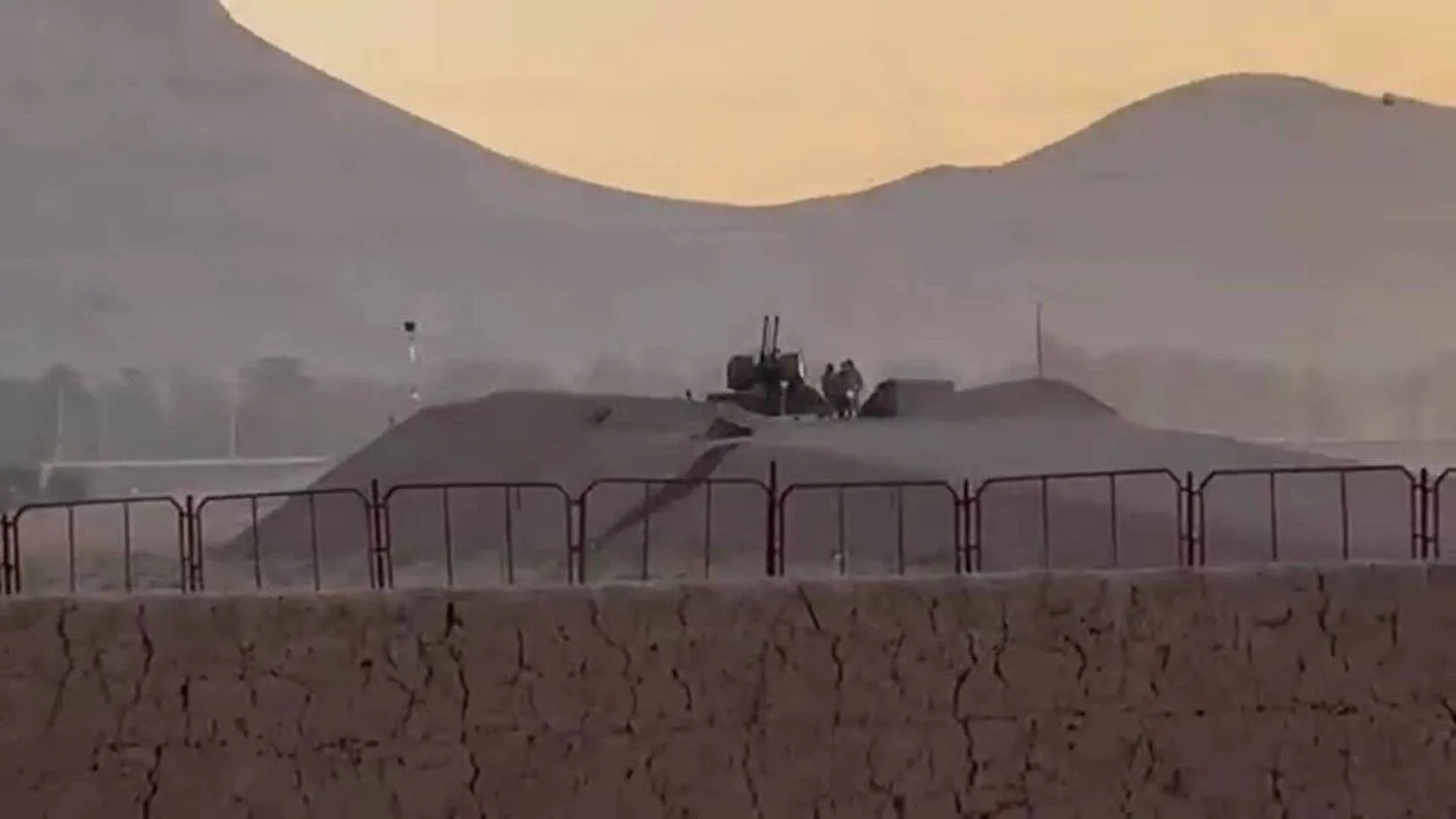Western intelligence sources revealed on Thursday that Israel has modified its plan and postponed its retaliation to Iran’s massed ballistic missile attack on Israel on 1 October.
“Israel has delayed its retaliatory strike against Iran because of a leak last week of potentially sensitive military information from the US,” The Times reported on Thursday.
Last Friday, a pro-Iranian Telegram channel published two top-secret documents which detailed surveillance by US intelligence of Israel's preparations for an attack on Iran, including the use of satellites to spy on operations carried out at Israeli Air Force bases.
The leak revealed Israel’s well-advanced plans to respond to a salvo of nearly 200 Iranian ballistic missiles fired against it earlier this month.
The Times quoted an intelligence source as saying that Israel has been forced to develop an alternative plan, one that requires detailed war gaming before any order is given.
“The leak of the American documents delayed the attack due to the need to change certain strategies and components,” the source said. “There will be a retaliation, but it has taken longer than it was supposed to take.”
The original leaked documents indicate that the Israeli Air Force is planning to carry out a similar but greatly expanded version of its ABLM attack on an Iranian radar site near Isfahan in April.
By launching these weapons from long range and far from Iran’s borders it would avoid the need for Israeli warplanes to overfly certain countries in the region.
During the Iranian attack on October 1, Tehran was at least partially successful in hitting the Nevatim airbase in southern Israel, satellite images show, despite shooting down the vast majority of the missiles.
In April, Israel responded to a previous barrage of Iranian ballistic missiles, cruise missiles and drones by destroying a radar station outside Isfahan.
In anticipation of the Israeli attack, Iranian Foreign Minister Abbas Araghchi toured the Middle East and visited countries such as Jordan, Iraq and the Gulf countries, trying to convince them to close their airspace to Israeli planes.
Iraqi sources revealed that Iranian officials informed leaders in the ruling Shiite coalition in Iraq that Israel would retaliate to the October 1 attacks within a week.
The sources said the new assessments came after reviewing the outcome of Araghchi’s talks in the region. But they said the Iranians will not stop their mediation efforts despite its difficulties.
Meanwhile, concerns over a wider conflict in the Middle East have prompted international airlines to suspend flights to Iran.
Qatar Airways said on Thursday it has temporarily suspended two regional routes.
“Due to the current situation in the Middle East region, Qatar Airways has temporarily suspended flights to and from Iran, Iraq and Lebanon until further notice,” it said in a travel alert.
Turkish-owned carriers Turkish Airlines and Pegasus have suspended flights to Iran until November 1.
The Lufthansa Group said its flights to Tehran will be suspended up to and including Jan. 31, 2025.
Meanwhile in Tehran, the Iranian Revolutionary Guard Corps chief Hossein Salami warned that an advanced US missile defense system recently stationed in Israel won’t be able to ward off future attacks from Tehran, according to Tasnim.
“Do not rely on THAAD, they have limited capabilities,” Salami was quoted as saying.
Speaking at the National Congress from Kermanshah province, Salami mainly lashed out at Israel saying the regime could head towards collapse instantly if it makes unwise decisions.
Salami said Israel is gradually digging a graveyard in which it will be buried.









